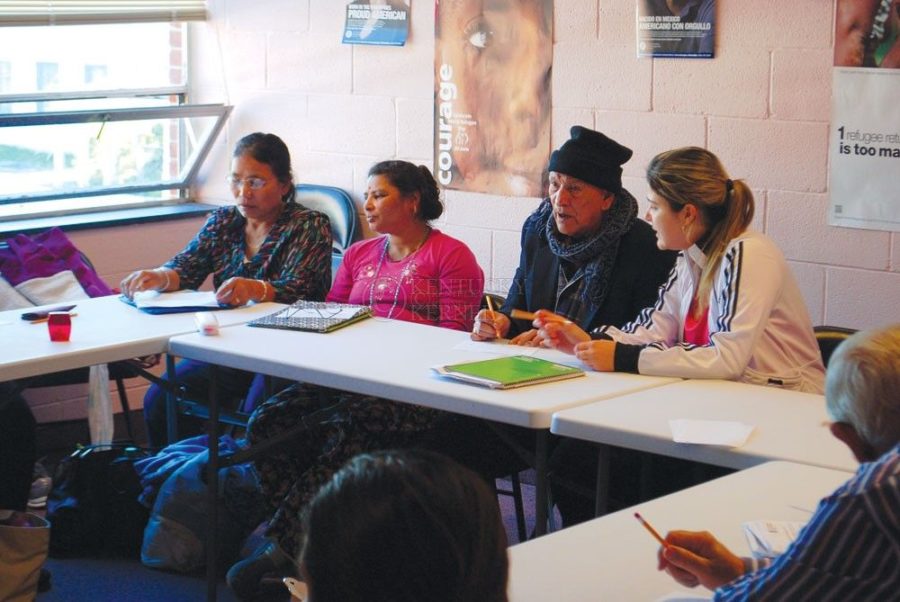Ministry helps refugees find a home
A group of five-year residents listen as a Kentucky Refugee Ministries employee instructs them in a citizenship class on Wednesday.
October 9, 2014
By Anne Halliwell
ahalliwell@kykernel.com
Just outside of downtown Lexington, Kentucky Refugee Ministries integrated a little over 300 refugees from all over the world into the Lexington community in the last year.
Located in the Arlington Christian Church on North Limestone, KRM works with people who have fled from areas like the Congo, Iraq and Bhutan, which is in the northeastern corner of India.
The refugees crossed the border into surrounding countries to escape religious, ethnic or political persecution, said resource coordinator Dabney Parker.
Since the beginning of its new year in October, KRM has received 14 individuals and families totaling 30 new clients.
“Refugees are the most courageous, resilient people I know,” Parker said. “They’re leaving everything behind — family, friends … and most of the time it’s for the children.”
KRM’s goal is to resettle refugees for two national church-based programs — the Church World Service and Episcopal Migration Ministries — in nine to 12 months.
Since the Lexington office’s creation in 1998, it has resettled between 1,500 and 2,000 people, Parker said.
There are about 15 million refugees in the world, Parker said, echoing UN global numbers, and less than one percent are settled into the second country they reach, or even leave refugee camps.
When the refugees arrive, they are legal immigrants, Parker said, and they get a green card after one year.
The process begins when KRM meets the refugees at the airport, then works to find housing and furnishings for the individuals and families, provide medical screenings and follow-ups and train adults in English language to find them employment.
For children, Parker said the focus is on vaccinations and finding a school.
Most initial jobs are entry-level, Parker said, because of a usual lack of English language skills. UK is one regular employer of refugees from KRM, Parker said, as are several industrial companies.
Irma Kocer, whose family came through KRM from Bosnia when she was young, now works as the case manager in the Lexington office.
“I see the absolute good it’s done in our lives,” Kocer said. “This wouldn’t feel like my home without KRM.”
KRM has 20 interns and volunteers in the office this semester, Parker said, four of which are from UK. International studies, social work and education students have all worked in and with KRM in the past, she said.
UK diplomacy graduate student Savanna Norrid said she volunteered at KRM last May and became a caseworker in September.
“I don’t like to say ‘I like doing something meaningful,’ but that’s kind of true,” Norrid said. “I like doing something good.”
































































































































































